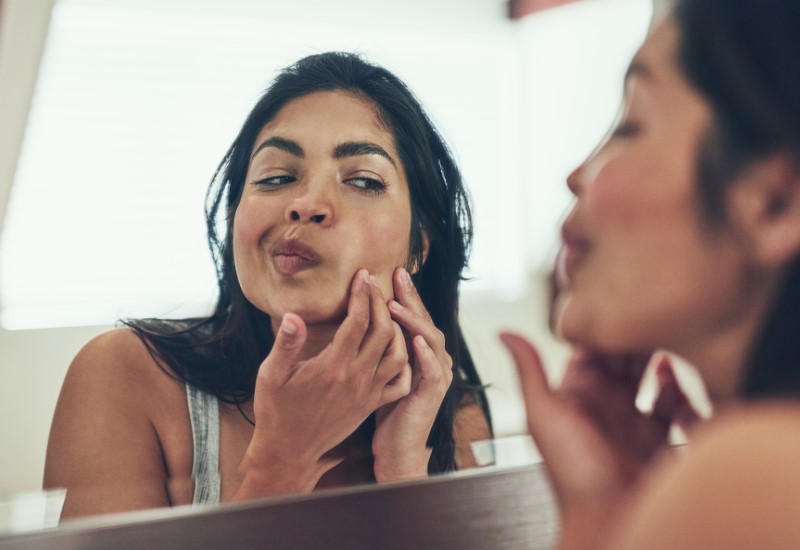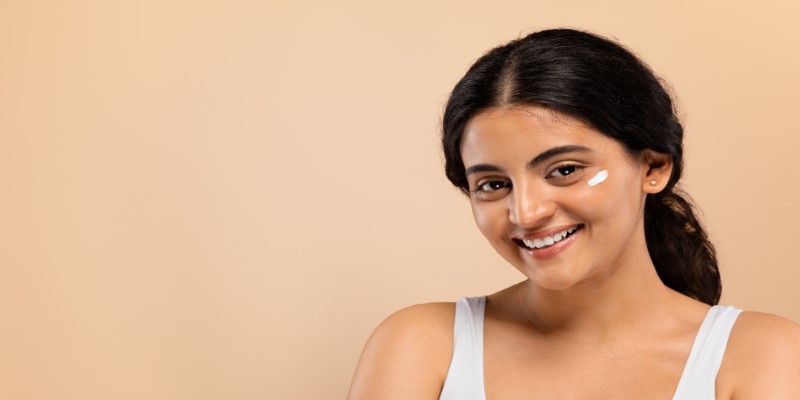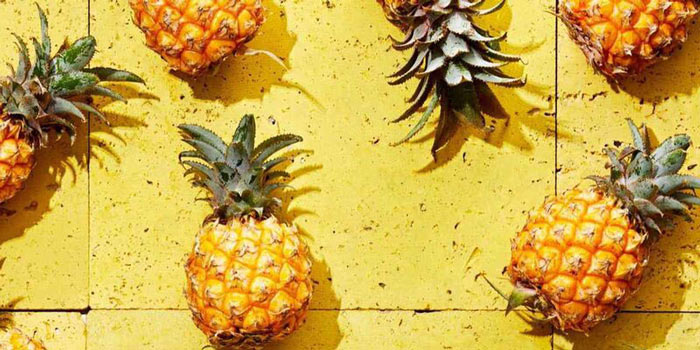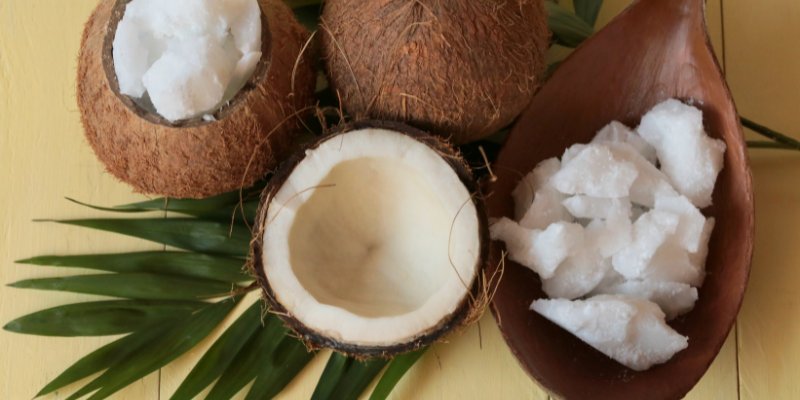
Acne, a common skin concern, affects people globally, but there's a notion that individuals with Indian skin types are more susceptible. Let's delve deeper to unravel the truth behind this belief.
Acne isn't just about hormonal changes during adolescence; it's a multifaceted issue influenced by genetics, lifestyle, and environmental factors. Regarding the Indian skin type, certain characteristics differentiate it from other skin types, potentially affecting the prevalence of acne.
Factors Influencing Acne in Indian Skin Type
Understanding the factors contributing to acne in Indian skin type requires a nuanced approach. From melanin content to environmental influences, various elements influence acne prevalence.
Melanin Content:
Indian skin typically contains higher melanin levels, resulting in more pigmentation. While melanin offers some protection against UV radiation, it also increases the risk of post-inflammatory hyperpigmentation (PIH) after acne breakouts.
Sebum Production:
Sebaceous glands in Indian skin tend to produce more sebum, the skin's natural oil. Excess sebum and dead skin cells and bacteria can clog pores, leading to acne formation.
Climate and Humidity:
India's tropical climate and high humidity levels create an ideal environment for bacterial growth on the skin's surface. Sweat and oil accumulation exacerbate pore blockages, contributing to acne flare-ups.
Diet and Lifestyle:
Traditional Indian diets rich in carbohydrates and dairy products may influence acne development. Moreover, lifestyle factors like stress and lack of sleep can disrupt hormonal balance, aggravating acne symptoms.
Addressing Acne in Indian Skin Type
Navigating acne management in Indian skin types requires a tailored approach addressing its unique characteristics and challenges.
Proper Skincare Routine:
Establishing a consistent skincare regimen tailored to Indian skin is crucial. Use gentle cleansers, non-comedogenic moisturizers, and oil-free sunscreens to prevent pore congestion and minimize acne formation.
Targeted Treatments:
Incorporate acne-fighting ingredients like salicylic acid, benzoyl peroxide, and retinoids into your skincare routine. These ingredients help unclog pores, reduce inflammation, and promote skin renewal, effectively managing acne.
Sun Protection:
Regular application of broad-spectrum sunscreen is essential for Indian skin prone to hyperpigmentation. Opt for SPF 30 or higher sunscreens to shield the skin from harmful UV rays and prevent PIH exacerbation.
Balanced Diet and Hydration:
Maintain a balanced diet rich in fruits, vegetables, and lean proteins to support overall skin health. Stay hydrated by drinking plenty of water to flush out toxins and maintain skin hydration levels.
Holistic Lifestyle Modifications:
In addition to skincare routines and targeted treatments, holistic lifestyle modifications can significantly manage acne in Indian skin types. Stress, sleep patterns, and physical activity can impact hormonal balance and skin health. Prioritizing stress management techniques, ensuring adequate sleep, and engaging in regular exercise can help reduce inflammation, balance hormone levels, and improve overall skin condition.

The Impact of Skincare Products and Cosmetics
The skincare products and cosmetics used by individuals with Indian skin types can significantly influence acne development and severity. Understanding how these products interact with the skin is crucial for effective acne management.
Ingredient Sensitivities:
Certain ingredients commonly found in skincare products and cosmetics may exacerbate acne in Indian skin types. Ingredients like mineral oil, lanolin, and artificial fragrances have the potential to clog pores and trigger acne flare-ups.
Non-Comedogenic Formulations:
Opting for non-comedogenic formulations is essential for individuals prone to acne. These products are designed to minimize pore blockages and reduce the risk of acne formation, making them ideal for Indian skin types.
Patch Testing:
Before incorporating new skincare products or cosmetics into their routine, individuals with Indian skin types should conduct patch tests to assess potential sensitivities or adverse reactions. This proactive approach helps prevent acne exacerbation and skin irritation.
Makeup Removal:
Thorough makeup removal is paramount for preventing pore congestion and acne breakouts. Utilizing gentle, oil-free makeup removers ensures complete removal of makeup residues without compromising skin health.
Professional Guidance:
Seeking guidance from dermatologists or skin care specialists can help individuals with Indian skin types navigate the vast array of skincare products and cosmetics. Professional recommendations tailored to individual skin concerns can optimize skincare routines and minimize acne risk.
By prioritizing skincare products and cosmetics formulated with acne-prone skin in mind, individuals can effectively manage acne while maintaining skin health and vitality.

Dispelling Common Myths
Separating fact from fiction is crucial in addressing misconceptions surrounding acne in Indian skin type.
Myth 1: All Indian Skin Types are Prone to Acne.
While Indian skin may have unique characteristics predisposing it to acne, not everyone with an Indian skin type experiences acne. Genetics, lifestyle, and skincare habits play significant roles in acne susceptibility.
Myth 2: Home Remedies are Sufficient for Acne Treatment.
Reality: While some home remedies may provide temporary relief, they're not always effective for treating acne. Consult a dermatologist for personalized treatment options tailored to your skin type and concerns.
Myth 3: Acne Will Disappear with Age.
Acne doesn't necessarily vanish with age; it can persist into adulthood. Proper skincare, lifestyle modifications, and professional treatment can help manage acne and minimize its impact on your skin.
Myth 4: Acne is a Result of Poor Hygiene.
Contrary to popular belief, acne is not solely caused by poor hygiene practices. While maintaining clean skin is important for overall skin health, genetics, hormonal fluctuations, and lifestyle choices primarily influence acne. Overwashing or scrubbing the skin excessively can strip away its natural oils, leading to irritation and potential worsening of acne symptoms.
Conclusion
Various factors, including genetics, sebum production, climate, and lifestyle, influence the prevalence of acne in individuals with Indian skin types. While Indian skin may be more prone to certain types of acne and pigmentation issues, proactive skincare and lifestyle modifications can effectively manage and minimize acne symptoms. Understanding your skin's unique needs and adopting a holistic approach to skincare is essential to achieving clear, healthy skin, regardless of skin type.



